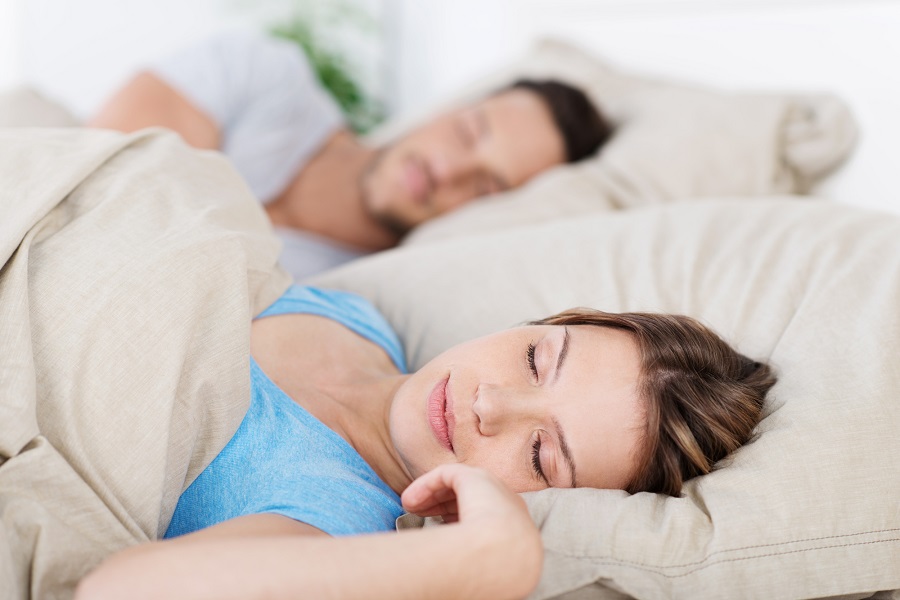How Does Sleep Apnea Adversely Affect Your Body?

Sleep apnea is a sleeping disorder where your breathing will frequently stop and start while you are sleeping. Serious health problems will ensue if you fail to get treated for this condition.
CPAP machines and masks are commonly prescribed for patients to sleep through the night without the risk of suffocation.
CPAP masks will optimize the delivery of air to your nasal passages so that you can enjoy quality sleep without snoring or gasping for air.
Here, we will focus on how sleep apnea adversely affects the body.
What is sleep apnea and its symptoms?
Sleep apnea is a severe medical disorder that may cause death if left untreated. The patient will stop breathing several times during sleep. In some extreme cases, the patient may stop breathing a hundred or more times while sleeping.
Untreated sleep apnea may cause high blood pressure, cardiomyopathy, stroke, diabetes, heart failure, and heart attacks. Children with sleep apnea may underperform at school due to sleep apnea. Adults may underperform at work due to illness, fatigue, and poor concentration.
People with sleep apnea may also be at increased risk for being involved in a car accident or work-related incident due to their lack of quality sleep.
Snoring and daytime fatigue are common symptoms. Waking up in the middle of the night, gasping and choking for air, should also be investigated by a doctor.
Night sweats, headaches, sexual dysfunction, anxiety, depression, frequent urination during the night, sore throat, dry mouth, irritability, drowsiness, and trouble concentrating are common symptoms of sleep apnea.
How does sleep apnea adversely affect your health?
Chronic obstructive pulmonary disease may develop if you fail to get treated for your sleep apnea in the early stages. You will also be at increased risk for developing heart disease, diabetes, hypertension, diabetes, fatty liver disease, and asthma due to your sleep apnea.
Chronic headaches may also make it hard for you to work, which can affect productivity. Irritability may cause issues at home, and anxiety and depression can make it hard for you to enjoy life.
A CPAP machine may help alleviate symptoms and may help reduce the risk of other health conditions developing.
How does CPAP therapy help overcome sleep apnea?
Constant airflow to the respiratory system is delivered and maintained by your CPAP machine and mask system. There are three types of masks to choose from.
Nasal masks are placed on the bridge of the nose. The mask will cover either the bottom half or the entire nose. Some irritation may occur from mask use, but most patients will become accustomed to wearing their nasal masks quickly.
Nasal pillow masks form a seal at the nostril base where the cushion is set. They are the least invasive of the three mask types, which make them an ideal choice if you enjoy watching tv or reading. However, they are not ideal if your prescription is for a high-pressure setting. People who suffer from nasal allergies should also not use nasal pillows for their sleep apnea.
Full face CPAP masks will form a seal around your mouth as well as your nose. They are ideal for those who breathe through their mouth. However, they are bulkier and heavier than their CPAP mask counterparts.
The ResMed Airflow P10 Nasal Pillow is recommended for those who prioritize value. The design is also minimally invasive, and the nasal pillow is ideal for people who are easily bothered by noise.
The Resmed AirFit N20 Nasal Mask is one of the most popular nasal CPAP masks for people who suffer from sleep apnea. It provides a reliable seal and comfortable fit for virtually every type of face.
The Fisher and Paykel Simplus Full Face System is designed for easy daily use. It provides superb support and is very comfortable for a full-face system. The seal is also very effective, and the state-of-the-art system provides reduced draft and noise.
The Fisher and Paykel Oracle Oral Complete System includes a small and standard silicone seal. It also has a convenient storage case and premium headgear with a cord that is easy to release. Flexitube assembly is also included.
CPAP therapy helps people who suffer from sleep apnea. It can allow them to enjoy a normal standard of living, and may even save their life. There are many different masks and brands to choose from.
Speak to your doctor to determine which CPAP mask type and machine will work best for you. Every case is different, and your doctor will perform sleep tests to diagnose your condition and its severity properly.
You may also change your machine or mask in the future if you notice your condition worsening or find the mask and the setting to be too cumbersome or uncomfortable.
Sleep Well
Sleep apnea affects millions of people in North America alone. Many people ignore the signs until it is too late. Many serious medical problems will develop if you fail to treat your sleep apnea quickly.
CPAP masks help people with sleep apnea. CPAP masks and machines are designed to help people breathe properly while sleeping. Severe sleep apnea may cause death by suffocation, so the CPAP machine and mask will prevent your airway from being obstructed.
CPAP masks and machines have come a long way since their inception. Today’s CPAP masks and machines are lightweight, compact, and minimally invasive. They also do not make a lot of noise, so you can sleep without serious noise pollution causing issues.
Masks can be adjusted, and settings can be modified to find the optimal sleeping arrangement for you. If you have any doubts about your CPAP apparatus, do not hesitate to speak to your doctor.
There are many affordable options available for those on a budget, and most patients who use CPAP machines get used to them after just a week or two of use.